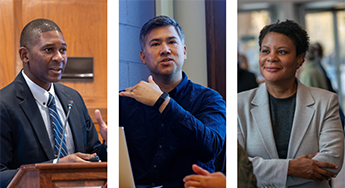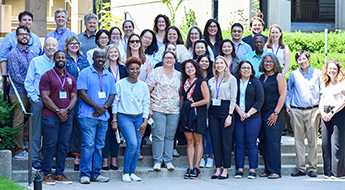Applying the Tools of Economics to Medical Decision Making
In his new book, IPR's Charles F. Manski examines how cutting-edge economics can improve decision making methods for doctors
Get all our news
I hope that this book will prove useful to a spectrum of readers,” Manski said. “I would like it to help clinicians and public health planners recognize and cope with uncertainty as they make decisions about patient care. It may help patients to become informed about and participate in their own care.”
Charles F. Manski

IPR econometrician Charles F. Manski applies the tools of economics to medical decision making, showing how uncertainty influences every stage, from risk analysis to treatment, and how this can be reasonably confronted.
Following a medical scare in which he found himself in an Israeli hospital with a chart marked FUO, or “fever of unknown origin,” IPR econometrician Charles Manski began digging into medical decision making.
Following his 1985 hospital experience, Manski—whose research spans econometrics, judgment and decision, and the analysis of public policy—saw another field that could benefit from his studies of uncertainty and its foundations in econometrics and statistics.
In is his forthcoming book, Patient Care Under Uncertainty (Princeton University Press, September 2019), Manski applies the tools of economics to medical decision making, showing how uncertainty influences every stage, from risk analysis to treatment, and how this can be reasonably confronted.
“I think people like myself have something to contribute to evidence-based medical research,” said Manski, the Board of Trustees Professor of Economics in the Weinberg College of Arts and Sciences at Northwestern University. “But we better be very careful about it.”
Manski said his focus is decision making under uncertainty regarding patient health status and response to treatment.
“By ‘uncertainty’ I do not just mean that clinicians and health planners may make probabilistic rather than definite predictions of patient outcomes,” wrote Manski in his introduction. “My concern is decision making when the available evidence and medical knowledge do not suffice to yield precise probabilistic predictions.”
In the context of healthcare, a common example is a choice between periodic surveillance or aggressive treatment of patients at risk for a potential disease, such as women prone to breast cancer.
While these choices make use of data analysis, Manski demonstrates how statistical imprecision and identification problems often undermine clinical research and practice. Reviewing prevailing practices in contemporary medicine, he discusses the controversy regarding whether clinicians should adhere to evidence-based guidelines or exercise their own judgment. He also critiques the wishful extrapolation of research findings from randomized trials to clinical practice. Exploring ways to make more sensible judgments with available data, to credibly use evidence, and to better train clinicians Manski helps practitioners and patients face uncertainties honestly. He concludes by examining patient care from a public health perspective and the management of uncertainty in drug approvals.
“I hope that this book will prove useful to a spectrum of readers,” Manski said. “I would like it to help clinicians and public health planners recognize and cope with uncertainty as they make decisions about patient care. It may help patients to become informed about and participate in their own care.”
Charles F. Manski is Board of Trustees Professor in Economics and an IPR fellow.
This article was written by Hilary Hurd Anyaso and originally published on Northwestern Now.
Published: September 10, 2019.


